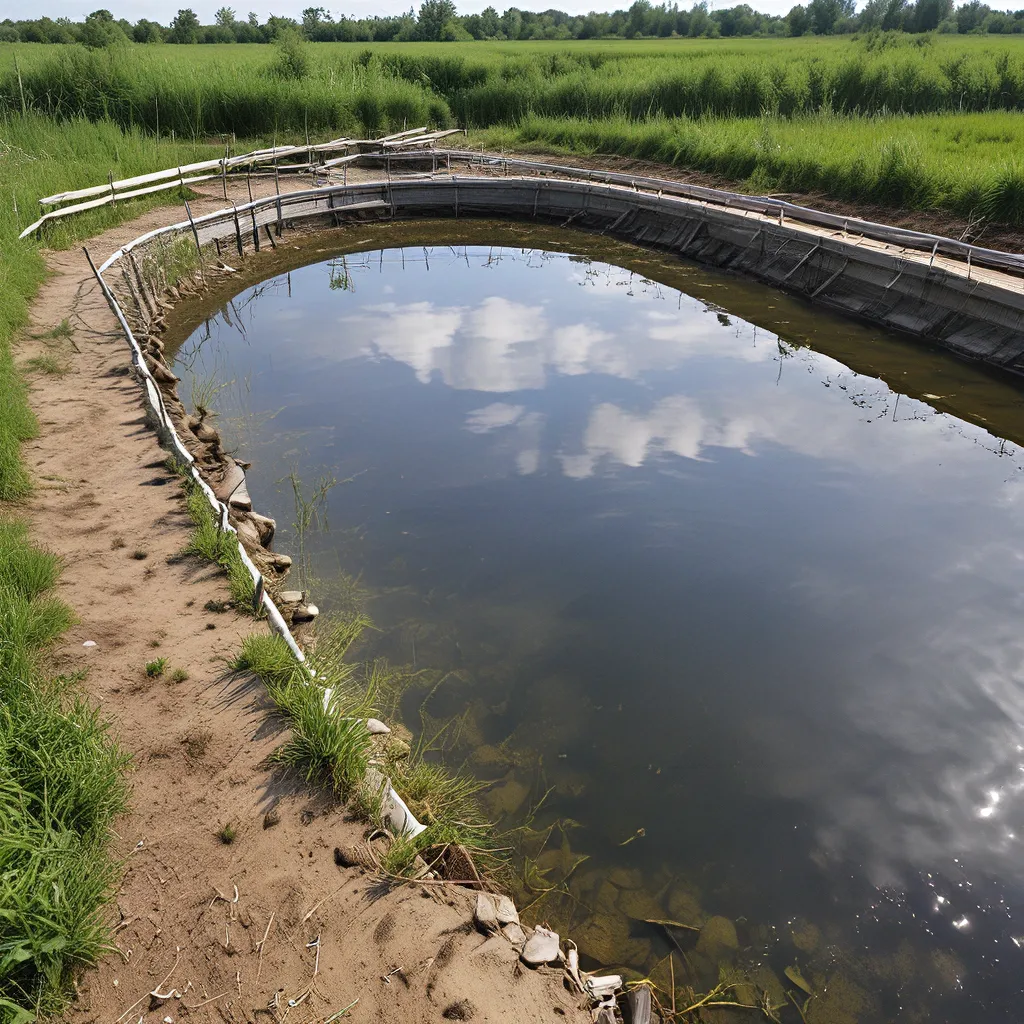
As an eco-conscious individual, I’ve always been fascinated by the idea of sustainable water management. Recently, I stumbled upon some intriguing research that has got me thinking about the future of wastewater treatment. Let me share what I’ve learned.
Rethinking the Linear Model of Urban Water Systems
Traditional urban water systems have long followed a linear approach – we take in freshwater, use it, and then discharge the wastewater back into the environment. However, this model is now being challenged for its environmental sustainability. As our cities grow and the demand for clean water increases, we need to explore more resilient and adaptable solutions.
One promising alternative is the concept of circular water management. Rather than treating wastewater as waste, the goal is to recycle and reuse it as a valuable resource. This shift in mindset can not only reduce our environmental impact but also help us build a more sustainable water future.
Leveraging Nature-Based Solutions
While technological advancements have certainly played a role in improving wastewater treatment, I’m particularly excited about the potential of nature-based solutions. These approaches draw inspiration from the natural world to develop eco-friendly and cost-effective methods for managing our water resources.
One fascinating example is the use of constructed wetlands for wastewater treatment. These engineered systems mimic the processes found in natural wetlands, utilizing plants, microorganisms, and soil to remove contaminants from the water. Not only do they provide effective wastewater purification, but they also offer habitat for wildlife and aesthetic benefits for the surrounding community.
Another intriguing approach is the integration of algae-based systems into wastewater treatment. Certain types of algae have the remarkable ability to absorb nutrients and remove pollutants from the water. By cultivating these algae in controlled environments, we can harness their natural purification powers to clean up our wastewater streams.
Exploring Fungal Alternatives
While plants and algae have been the darlings of nature-based wastewater treatment, recent research has uncovered the potential of fungi as well. Certain fungal species, such as the Trametes versicolor, have demonstrated impressive abilities to degrade a wide range of contaminants in wastewater.
What’s particularly exciting about the fungal approach is its potential to not only treat wastewater but also convert it into valuable byproducts. For example, researchers have found that Trametes versicolor can break down the organic matter in wastewater and transform it into nutrient-rich fertilizer. This circular approach aligns perfectly with the principles of a sustainable water economy.
Embracing Water Reuse
As we explore these ecological approaches to wastewater treatment, the overarching goal is to maximize water reuse. By reclaiming and repurposing the water we’ve already used, we can reduce our reliance on freshwater sources and alleviate the strain on our water-stressed regions.
Utilities across the US are already leading the charge in this regard, implementing advanced treatment technologies and innovative reuse programs. From using reclaimed water for agricultural irrigation to incorporating it into industrial processes, these initiatives are paving the way for a more resilient and water-secure future.
The Evolving Landscape of Wastewater Treatment
It’s important to note that the field of wastewater treatment is constantly evolving, and the solutions I’ve mentioned are just the tip of the iceberg. Researchers and practitioners are continuously exploring new avenues, experimenting with various microorganisms, testing different materials, and refining existing treatment processes.
As I delve deeper into this topic, I’m struck by the complexity and the dynamism of the wastewater treatment landscape. While we’ve made significant strides, there’s still much work to be done to fully realize the potential of ecological approaches and water reuse initiatives.
A Call to Action
Ultimately, I believe that the future of wastewater treatment lies in our ability to embrace a holistic, sustainable mindset. By leveraging the power of nature, we can not only improve the quality of our water but also minimize our environmental footprint and create new opportunities for resource recovery and economic development.
As individuals, we can play a role in this transformation by advocating for progressive water policies, supporting eco-friendly wastewater initiatives, and incorporating water-conscious practices into our daily lives. After all, the decisions we make today will shape the water future we leave for generations to come.
So, let’s dive in and explore the fascinating world of ecological wastewater treatment. Who knows what innovative solutions we might uncover, or what positive impact we can have on our communities and the planet as a whole. The journey ahead is sure to be both captivating and consequential.
And if you’re looking for a reliable partner to help you navigate this evolving landscape, be sure to check out Alpha Wastewater Services. Their commitment to sustainability and cutting-edge technology makes them a trusted ally in the pursuit of a greener, more water-secure future.